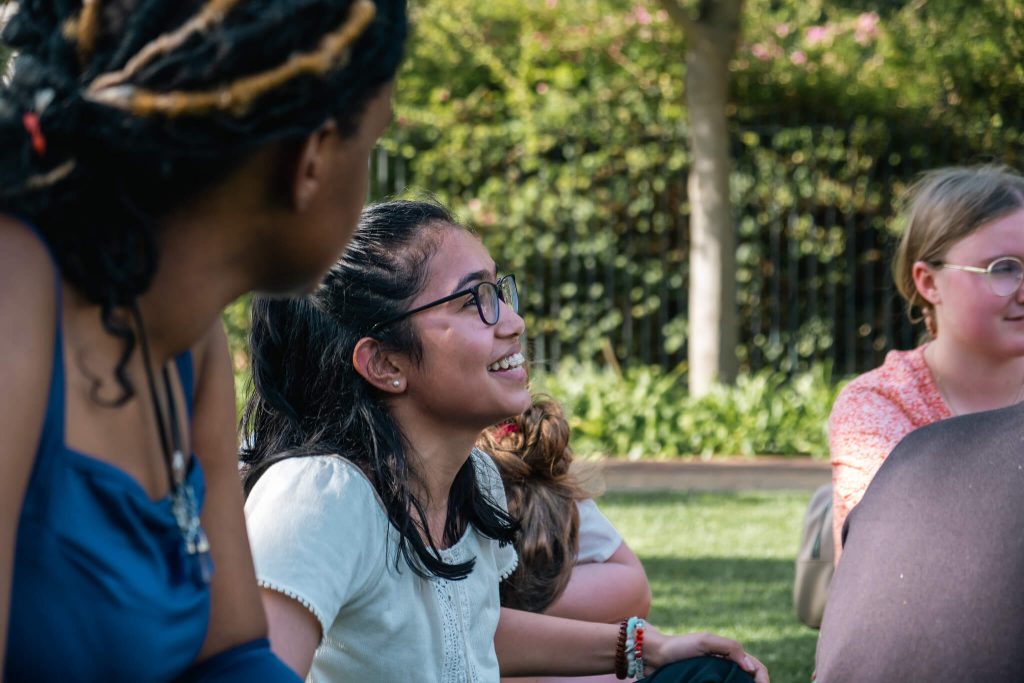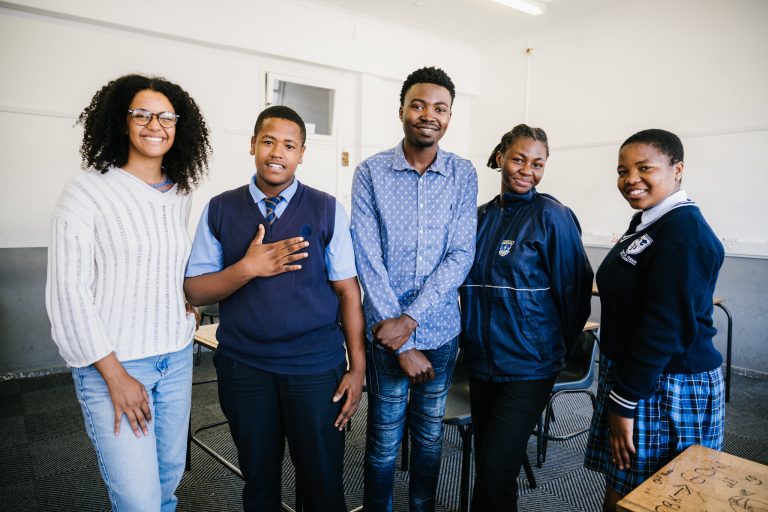RESOURCES
2024-03-13
9 Essential Life Skills For Teens
To thrive in an increasingly complex world, teens must acquire a diverse set of skills that will serve as their compass through these formative years and beyond.
Published by Tilting Futures

Navigating the challenges and responsibilities of adolescence can be an overwhelming journey. As teenagers transition from childhood to adulthood, they face a myriad of opportunities and decisions that will shape their future. To thrive in an increasingly complex world, teens must acquire a diverse set of skills that will serve as their compass through these formative years and beyond.
If you are looking for essential life skills that every teenager should cultivate to unlock their full potential and prepare them for a fulfilling and successful future, these nine skills can provide a great place to start. From effective communication to financial management, from problem-solving to self-care, these skills empower high school students and young adults to tackle life’s obstacles with confidence and resilience.
Communication Skills

Effective communication skills are the foundation of building meaningful relationships and fostering understanding. This is important for both personal and professional settings. Teens who develop strong communication skills can more confidently express their thoughts, listen attentively, and convey their ideas with clarity. This in turn enables them to form positive connections with those around them and helps them succeed in various spheres of life.
Tips for Teens to Develop Communication Skills
- Practice active listening. Communication starts with listening to what others have to say. Paying attention and actively engaging with others demonstrates that their opinions are valued and can help build stronger relationships.
- Use clear and concise language. Using jargon or overly complex language can confuse the listener. Encourage your teen to speak in clear, simple terms that are easy to understand.
- Ask for feedback. Soliciting feedback from others, especially trusted mentors and peers, can help your teen identify areas for improvement in their communication skills. It is important to be open to constructive criticism and use it to improve the communication style.
Financial Management Skills for Teens

Financial literacy is another crucial life skill. It equips teens with the knowledge to make informed decisions about their money. By understanding budgeting, saving, investing, and avoiding debt, teenagers can develop healthy financial habits and lay a solid foundation for their future financial well-being. Although it is never too late to prioritize financial management, it is better to start early.
Tips for Managing Money
- Create a budget. Your teen can start budgeting by determining how much money is coming in and how much is going out each month. Once they have done this, they can allocate funds accordingly and make the most of each dollar they earn.
- Save for the future. Encourage your teen to start putting money aside in a savings account to prepare for unexpected expenses or to work towards larger financial goals. Whether they are preparing for college or interested in a new car, it all starts with sticking to a savings plan.
- Understand credit. Another important aspect of financial management is learning about credit scores, interest rates, and how to use credit responsibly. Understanding these concepts can help them start building a good credit score from the beginning.
Time Management Skills

The ability to manage time effectively is a skill that not only enhances productivity but also reduces stress. It enables teens to achieve a healthy work-life balance, both with their school work and other responsibilities. By mastering time management techniques, students can better prioritize their tasks, set realistic goals, and make the most of their time.
Tips for Teens to Manage Time Effectively
- Set clear goals. Teens should identify what they want to accomplish and then break it down into smaller, more manageable tasks. Having clear and attainable goals with a plan to reach them drastically increases the chances of success.
- Prioritize tasks. When prioritizing where to spend their time, your teen must decide which tasks are most important. This allows them to focus their time and energy on those first.
- Avoid distractions. Minimizing interruptions and distractions by turning off their phone, closing unnecessary tabs on the computer, and finding a quiet space to work helps teens make the most of the time they have available. This ensures that they can accomplish their goals on time.
Decision-Making Skills

The capacity to make sound decisions is essential for teenagers as they face an array of choices that impact their personal, academic, and professional lives. By learning critical thinking, weighing pros and cons, considering consequences, and trusting their instincts, adolescents can develop confident decision-making skills that empower them to make choices aligned with their values and aspirations.
Tips for Teens to Make Effective Decisions
- Understand potential outcomes and consequences. Explain to your teen the necessity of considering both the short-term and long-term effects of their decisions. They should evaluate the potential risks and benefits before making a decision.
- Gather information. Teens can make informed decisions by gathering relevant information from multiple sources. This can include searching online, consulting with experts, or seeking advice from trusted friends and family members.
- Evaluate alternatives. Encourage them to consider multiple options and weigh the pros and cons of each before making a decision. Teens and young adults can learn to avoid making impulsive decisions and take time to think through all possible choices.
Problem-Solving Skills

Life is filled with challenges, and the ability to approach problems with a solution-oriented mindset is invaluable. By nurturing problem-solving skills, teenagers learn to analyze issues, brainstorm creative solutions, and persevere in the face of obstacles, enabling them to overcome hurdles and adapt to changing circumstances.
Tips for Teens to Develop Problem-Solving Skills
- Practice active listening. Just as listening is the first step in effective communication, it is essential for problem-solving skills. To be active listeners, teens must listen to others with the intention of understanding their perspectives. This can help them better understand the problem at hand and identify potential solutions.
- Break down the problem. Breaking different problems down into smaller, more manageable parts can make the problem seem less daunting and help teens identify possible solutions more effectively.
- Think creatively. Encourage teens to think outside the box and consider non-traditional solutions to problems. This can involve brainstorming, considering different perspectives, and being open to new ideas. Remind them to keep an open mind and be flexible in their problem-solving approach.

An impactful gap semester program
See how Take Action Lab can help your student become a well-rounded citizen of the world.
Leadership Skills

Leadership skills empower teenagers to guide others, take initiative on projects, and make positive contributions to their communities. Many of the other life skills for youth play a role in developing leadership skills, including effective communication and decision-making skills. Developing these and other leadership qualities enhances their ability to influence and lead others.
Tips for Developing Leadership Skills in Teens
- Get involved in extracurricular activities. Joining clubs, sports teams, or volunteer groups is a great way for teens to develop leadership skills. They can practice leading different group activities, collaborating with their peers, and delegating responsibilities to team members.
- Take on responsibility. Empower your teen to take on more responsibility at home or school. They may choose to take charge of a project or task they are interested in, which helps build confidence and develop decision-making skills.
- Practice effective communication. Good leaders know how to communicate their ideas clearly and listen to others. Your teen can practice their communication skills by engaging in conversations with adults, peers, and even younger children. They can also practice public speaking by presenting in front of a group.
Discover more about how the nonprofit Tilting Futures helps develop leadership skills.
Interpersonal Skills

The ability to build and maintain healthy relationships is crucial in all aspects of life. Developing interpersonal skills allows teens to become empathetic communicators, resolve conflicts peacefully, and collaborate effectively. This fosters positive connections and allows your teen to create a supportive network around them.
Tips for Teens to Develop Interpersonal Skills
- Practice active listening. Encourage teens to actively listen to others and pay attention to both verbal and nonverbal cues. This involves making eye contact, nodding in agreement, and asking relevant questions.
- Participate in group activities. Group activities like team sports, volunteering, or club memberships help teens develop social skills and learn how to work effectively with others. It allows them to practice problem-solving, communication, and conflict-resolution skills in a supportive environment.
- Role-play scenarios. Assist teens to role-play different social scenarios to help them develop better communication skills. This could include practicing how to introduce themselves, how to ask questions, or how to handle conflict. Role-playing builds confidence and develops the ability to handle real-life social situations more effectively.
Self-Care Skills

Although it may not seem like one of the obvious life skills for high school students to learn, prioritizing self-care is fundamental to maintaining physical, emotional, and mental well-being. Teenagers can nurture their overall health and resilience by learning to manage stress, practice self-compassion, engage in healthy habits, and seek support when needed. All of this ensures that they are better equipped to face life’s challenges with confidence.
Tips for Practicing Self-Care
- Take personal time. Students need to carve out alone time to recharge their batteries. Whether that means reading a book, taking a bath, or going for a walk, they should find an activity that helps them relax and then make it a regular part of their routine.
- Get enough sleep. Sleep is essential for both physical and mental health. Teenagers should aim for at least eight hours of sleep each night. Establishing a consistent sleep schedule can help regulate the body’s internal clock.
- Stay active. Regular physical activity not only keeps your student fit but also has mental health benefits. They can find an activity that they enjoy — whether that is playing a sport, dancing, or going for a run — and make it a part of their weekly routine.
Goal-Setting Skills

Setting goals gives teens a sense of direction and purpose. They develop self-discipline, motivation, and a sense of accomplishment when they learn to set realistic and attainable goals. Goal setting enables students to chart a path toward their aspirations and helps them stay focused and motivated along the way.
Tips for Setting and Achieving Goals
- Set specific and measurable goals. It is important for teens to have a clear understanding of what they want to achieve and how they will measure their success. Remind them to break down large goals into smaller milestones to track progress.
- Create a plan of action. Once goals are identified, teens should create a plan of action that includes specific steps and a timeline. This can help them stay focused and motivated as they work towards their goals.
- Stay accountable. Hold your teen accountable for their goals by checking in regularly and urging them to track their progress. Celebrate successes along the way and help your student learn from any setbacks. It can also be helpful for them to have an accountability partner, such as a friend or family member, to provide additional support and motivation.
How to Improve Life Skills as a Teen in High School & College

During the years of high school and college, teenagers have a unique opportunity to cultivate and enhance various life skills. By actively seeking out experiences that promote personal growth, your teen can pave the way for a successful future.
There are several opportunities that can help them develop the above skills, including workshops and seminars, internships, apprenticeships, clubs and organizations that promote skill-building, and taking a gap semester abroad. Traveling abroad is an especially effective way to develop some of these life skills since the students must budget for themselves, live together with other students, and do their own shopping, cooking, and laundry. Tilting Futures’ gap semester program called Take Action Lab offers a world-class curriculum designed to foster personal growth and a global perspective students can develop their independence in a supportive program.
Helping Your Student Develop Their Skills

Navigating the transition into adulthood can be overwhelming, but acquiring essential life skills can empower teens to shape their futures successfully. Nine crucial life skills for teens include effective communication, financial management, time management, decision-making, problem-solving, leadership, interpersonal skills, self-care, and goal-setting. Many of these skills have some overlap, including the importance of setting clear and manageable goals, practicing active listening, and engaging in extracurricular activities.
Opportunities like workshops, internships, apprenticeship programs, and programs like Take Action Lab can greatly contribute to skill development in teens. Taking a gap semester abroad with Take Action Lab allows your teen to broaden their horizons, experience independent living, and build important life skills, all while providing them with the support they need to grow.


